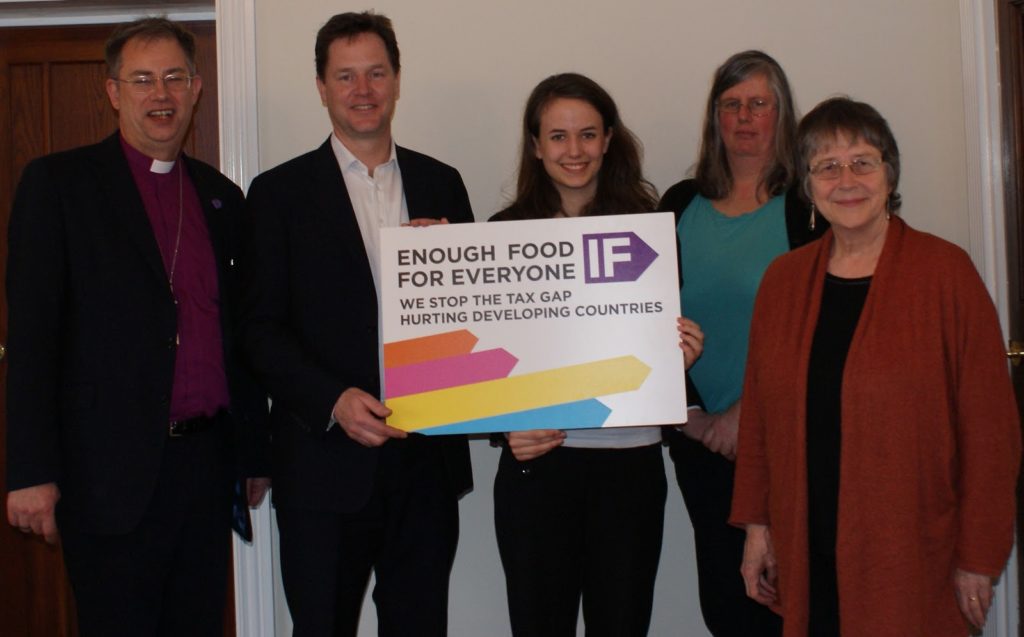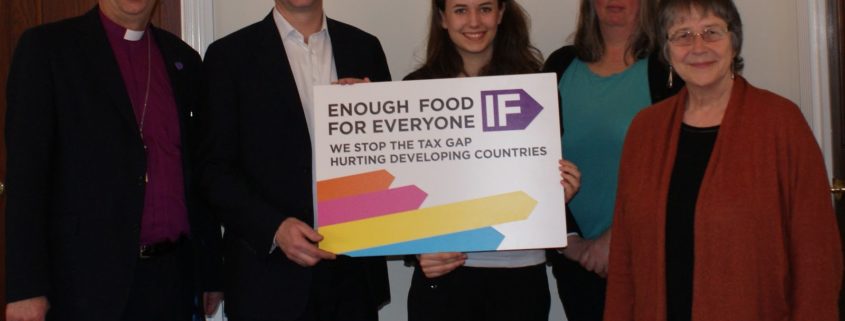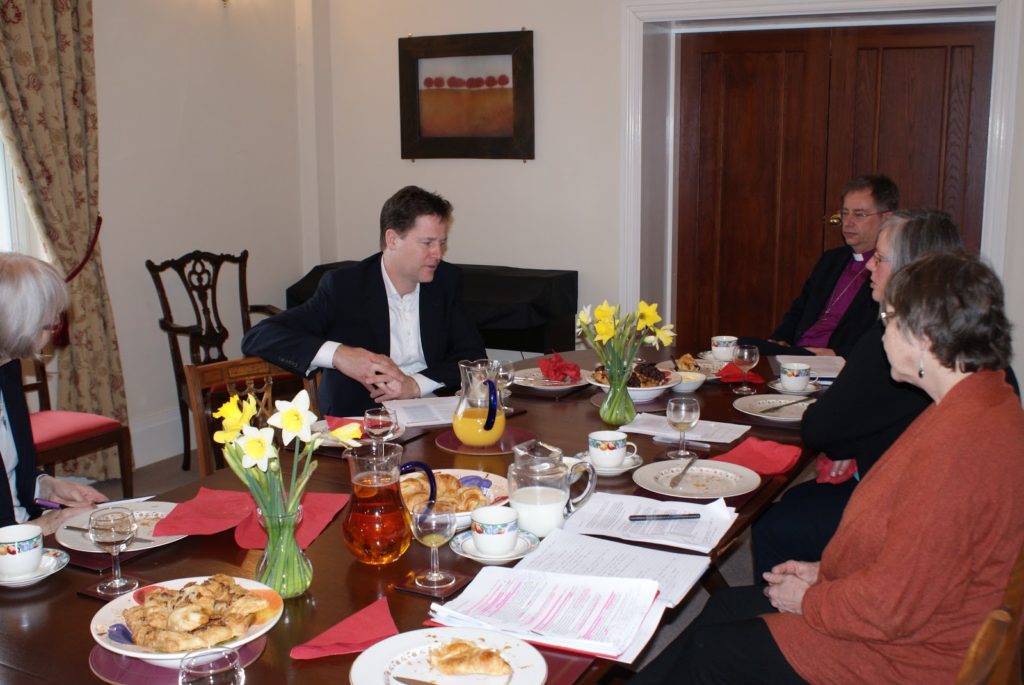It was very good to meet with Nick Clegg, the Deputy Prime Minister this morning, who is also my own Member of Parliament. I met with Mr. Clegg at the request of Christian Aid and as part of the IF campaign. I was joined by to other local Christian Aid representatives: Jackie Butcher, who is also my advisor on overseas development and Mary Grover from Ranmoor, and by my daughter, Sarah, who works in Christian Aid’s campaign team.
 If you don’t know the IF campaign then please look at their website and sign up. The full title is Enough Food for Everyone: IF. It’s a campaign against world hunger and is a major coalition of charities, aid agencies and churches, including the Church of England and, of course, Christian Aid. IF is focussing on the four priorities of aid, land, tax and transparency. IF is a focussed campaign and geared to the UK’s pivotal role as chair of the G8 summit this year. More details at http://enoughfoodif.org
If you don’t know the IF campaign then please look at their website and sign up. The full title is Enough Food for Everyone: IF. It’s a campaign against world hunger and is a major coalition of charities, aid agencies and churches, including the Church of England and, of course, Christian Aid. IF is focussing on the four priorities of aid, land, tax and transparency. IF is a focussed campaign and geared to the UK’s pivotal role as chair of the G8 summit this year. More details at http://enoughfoodif.org
Our conversation this morning covered the two key areas of aid and tax. It was an extremely positive conversation and I was left very impressed by Mr. Clegg’s personal and political commitment to the causes of aid and tax reform.
Many years ago, when I was almost exactly the age that Sarah my daughter is now (23), I took part in a mass lobby of MP’s in support of something called the Brandt Report: a major report on development and global finance. The Brandt Report was, I think, the first time a call was made for governments to devote 0.7% of their GDP to international aid. It is an historic moment therefore to reach that benchmark this year thanks to the commitment of all three political parties: the previous Labour government, the Liberal Democrats and the Conservatives. It’s a commitment made and maintained in a very challenging economic environment. Many other developing countries are moving backwards not forwards on this agenda. Britain genuinely is giving a lead.
But, as we know, aid alone is not enough. Reform of the international tax system is key. According to the excellent IF policy briefing: “The OECD estimates that developing countries lose three times more to tax havens than they receive in aid each year”. Low income countries currently collect an average of only 13% of GDP in tax revenues compared to 35% in developed countries.
And here’s the thing: “The UN estimates that if the world’s Least Developed Countries raised at least 20 percent of their GDP from taxes, they could achieve the Millennium Development Goals”.
Tax reform is key. Multinational companies avoiding tax in developing countries are not contributing to the education, the healthcare, the security and the government of the people they employ there. In the last few years, according to Nick Clegg in this morning’s conversation, tax reform has become a massive issue for developing countries as well. As we have seen with the major campaigns over the last year, tax avoidance affects UK income as well as income in the developing world. It’s a political winner at home as well as abroad.
It’s a remarkable thing that the UK is helping to place international tax reform at the heart of the G8’s agenda. The summit in June represents a really significant opportunity to press further forward. Transparency of assets and international disclosure are key. Christian Aid and IF are lobbying for an amendment of the Finance Bill to extend the Disclosure of Tax Avoidance Schemes to give an international reporting dimension and also for the public declaration of beneficial ownership to prevent companies disguising their assets through shadow companies registered in tax havens.
I hope that the IF campaign will continue to gather massive public support as the G8 Summit draws near. Lobbyists are in an unusual situation as we found this morning. The UK government is onside, committed to the agenda and taking a lead internationally (though there may be differences on the realistic pace of change and precise policies). The IF campaign needs to continue to communicate to the public just how key these issues are and how much our own government can accomplish as well as to apply pressure internationally so that some of the other G8 countries follow the UK’s lead.


